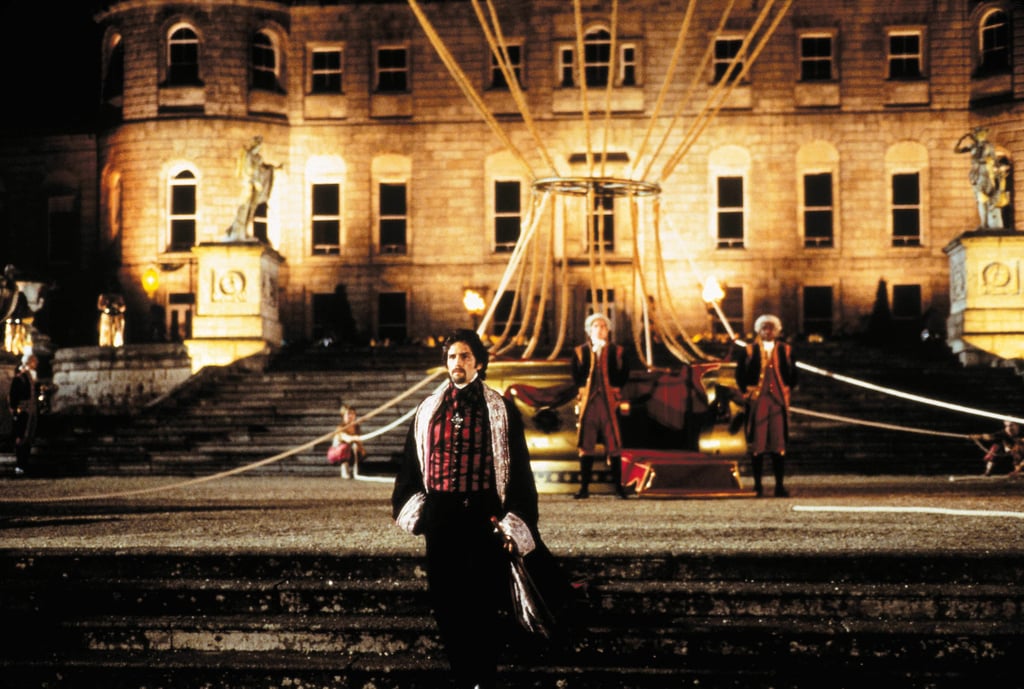The Count Of Monte Cristo: A Modern Reassessment Of A Literary Giant

Table of Contents
Edmond Dantes's Journey: Revenge, Redemption, and the Human Spirit
Edmond Dantes’s journey forms the heart of The Count of Monte Cristo. His tale is not simply one of revenge; it’s a complex exploration of human nature, encompassing the allure of vengeance, the arduous path to redemption, and the enduring power of the human spirit.
The Allure of Revenge:
Edmond’s quest for vengeance stems from profound injustice. Falsely accused and imprisoned, he witnesses firsthand the corruption and cruelty of the French judicial system. This fuels his burning desire for retribution against those who wronged him.
- Societal Injustice: The novel highlights the arbitrary nature of justice, particularly for those lacking power and influence. Edmond's wrongful imprisonment underscores the devastating impact of systemic corruption.
- Moral Ambiguity: While sympathetic to Edmond's suffering, the novel doesn't shy away from the moral complexities of his actions. His meticulously planned revenge raises questions about the nature of justice and the ethics of retribution. The line between justice and vengeance becomes increasingly blurred.
The Path to Redemption:
Edmond's transformation is equally compelling. While his initial goal is revenge, his journey reveals a capacity for growth and even forgiveness. His interactions with various characters, particularly Haydée, shape his evolving moral compass.
- Evolving Relationships: Relationships with characters like Haydée, Mercedes, and even some of his enemies, force Edmond to confront his own actions and motivations. These interactions reveal subtle shifts in his perspective.
- Choices and Consequences: The novel meticulously details the consequences of Edmond's choices, showing the ripple effects of his actions on himself and those around him. This nuanced portrayal adds depth to his character arc.
- Moments of Compassion: Despite his thirst for revenge, glimmers of compassion and self-reflection punctuate Edmond's journey, hinting at an underlying capacity for empathy and understanding.
The Enduring Power of the Human Spirit:
Edmond's perseverance in the face of unimaginable hardship resonates deeply with modern readers. His unwavering determination and resilience in the face of adversity serve as a powerful testament to the strength of the human spirit.
- Hope and Perseverance: Despite suffering immense loss and betrayal, Edmond never completely loses hope. His unwavering perseverance in the face of adversity is a core element of his character.
- Human Capacity for Good and Evil: Edmond’s journey demonstrates the complex interplay between good and evil within human nature. He embodies both, showcasing the potential for both great cruelty and unexpected compassion.
Themes That Still Resonate: Exploring Justice, Betrayal, and Societal Injustice
The Count of Monte Cristo transcends its historical setting, exploring timeless themes that continue to resonate with contemporary audiences. Its examination of justice, betrayal, and societal injustice remains strikingly relevant.
Justice and Injustice in The Count of Monte Cristo:
The novel serves as a powerful critique of the judicial system, highlighting its susceptibility to corruption and the devastating consequences for the innocent. Edmond’s experience exposes the flaws inherent in a system easily manipulated by power and wealth.
- Instances of Injustice: The novel is rife with instances of injustice, from Edmond's false imprisonment to the various acts of betrayal and manipulation that permeate the plot.
- Types of Revenge: Dumas presents different forms of revenge, some justified, some not, forcing the reader to confront the complexities of retribution.
- Justice vs. Vengeance: The novel forces a consideration of whether Edmond's actions ultimately constitute true justice or simply a mirroring of the cruelty he experienced.
The Power of Betrayal and Deception:
Betrayal is a central theme, shaping the destinies of numerous characters. The motivations behind these betrayals are complex, ranging from ambition and greed to fear and self-preservation.
- Motivations of Betrayers: The novel delves into the psychology of the betrayers, exploring the factors that contribute to their actions.
- Emotional Consequences: The novel vividly portrays the devastating emotional consequences of betrayal for both the betrayed and the betrayers.
- Trust and Loyalty: The theme of trust and loyalty is constantly challenged, forcing characters to confront the fragility of relationships and the importance of genuine connection.
Societal Injustice and Class Conflict:
The Count of Monte Cristo vividly portrays the stark social inequalities of 19th-century France. The novel demonstrates how class plays a significant role in shaping characters' destinies and opportunities.
- Social Structures of 19th-Century France: Dumas masterfully depicts the rigid social hierarchy and the limited options available to those born into lower classes.
- Class and Destiny: The novel showcases how class significantly impacts characters' lives, highlighting the advantages enjoyed by the wealthy and privileged while exposing the disadvantages faced by the less fortunate.
- Critique of Societal Injustices: The Count of Monte Cristo serves as a potent critique of societal injustices, emphasizing the need for fairness and equality.
The Count of Monte Cristo's Enduring Legacy: Adaptations and Cultural Impact
The enduring popularity of The Count of Monte Cristo is evident in its numerous adaptations and its continued influence on literature and popular culture.
From Page to Screen:
The novel has been adapted countless times for film, television, and stage, each interpretation offering a unique perspective on the story and its characters.
- Notable Adaptations: From the classic 1934 film to more recent television series, numerous adaptations showcase the novel's enduring appeal.
- Interpretations of Characters and Themes: Different adaptations emphasize various aspects of the story, resulting in diverse interpretations of characters and themes.
- Impact on Popularity: These adaptations have played a crucial role in maintaining the novel's widespread popularity across generations.
The Novel's Influence on Modern Literature and Storytelling:
The Count of Monte Cristo’s influence on modern literature and storytelling is undeniable. Its narrative techniques and themes continue to inspire writers and filmmakers.
- Impact on Adventure Genre: The novel significantly influenced the adventure genre, establishing many of its key tropes and conventions.
- Recurring Themes and Tropes: Themes of revenge, betrayal, and redemption remain staples of modern narratives, directly influenced by Dumas's work.
- Narrative Techniques: Dumas's masterful storytelling techniques, including suspense, intricate plotting, and complex character development, continue to be studied and emulated by writers today.
Conclusion: A Timeless Tale of Revenge and Redemption
The Count of Monte Cristo remains a timeless tale, exploring the enduring themes of revenge, justice, betrayal, and redemption. Its complex characters and intricate plot continue to captivate readers and viewers. The novel’s powerful critique of societal injustice and its exploration of the human spirit’s resilience remain strikingly relevant in the modern world. We encourage you to revisit or discover the timeless appeal of The Count of Monte Cristo for yourself – experience the story of The Count of Monte Cristo and witness its enduring power as a literary masterpiece. Reading The Count of Monte Cristo is an experience you won't soon forget.

Featured Posts
-
 Churchill Downs A Race Against Time Before The Kentucky Derby
May 04, 2025
Churchill Downs A Race Against Time Before The Kentucky Derby
May 04, 2025 -
 Ufc Des Moines Fight Card What Time Does It Start Tonight
May 04, 2025
Ufc Des Moines Fight Card What Time Does It Start Tonight
May 04, 2025 -
 Sandhagen Vs Figueiredo A Comprehensive Look At Ufc On Espn 67 Results
May 04, 2025
Sandhagen Vs Figueiredo A Comprehensive Look At Ufc On Espn 67 Results
May 04, 2025 -
 Affordable Housing Progress In Tomatin Strathdearn Project Breaks Ground
May 04, 2025
Affordable Housing Progress In Tomatin Strathdearn Project Breaks Ground
May 04, 2025 -
 Corinthians X Internacional Onde Assistir Ao Vivo Horario E Escalacoes
May 04, 2025
Corinthians X Internacional Onde Assistir Ao Vivo Horario E Escalacoes
May 04, 2025
